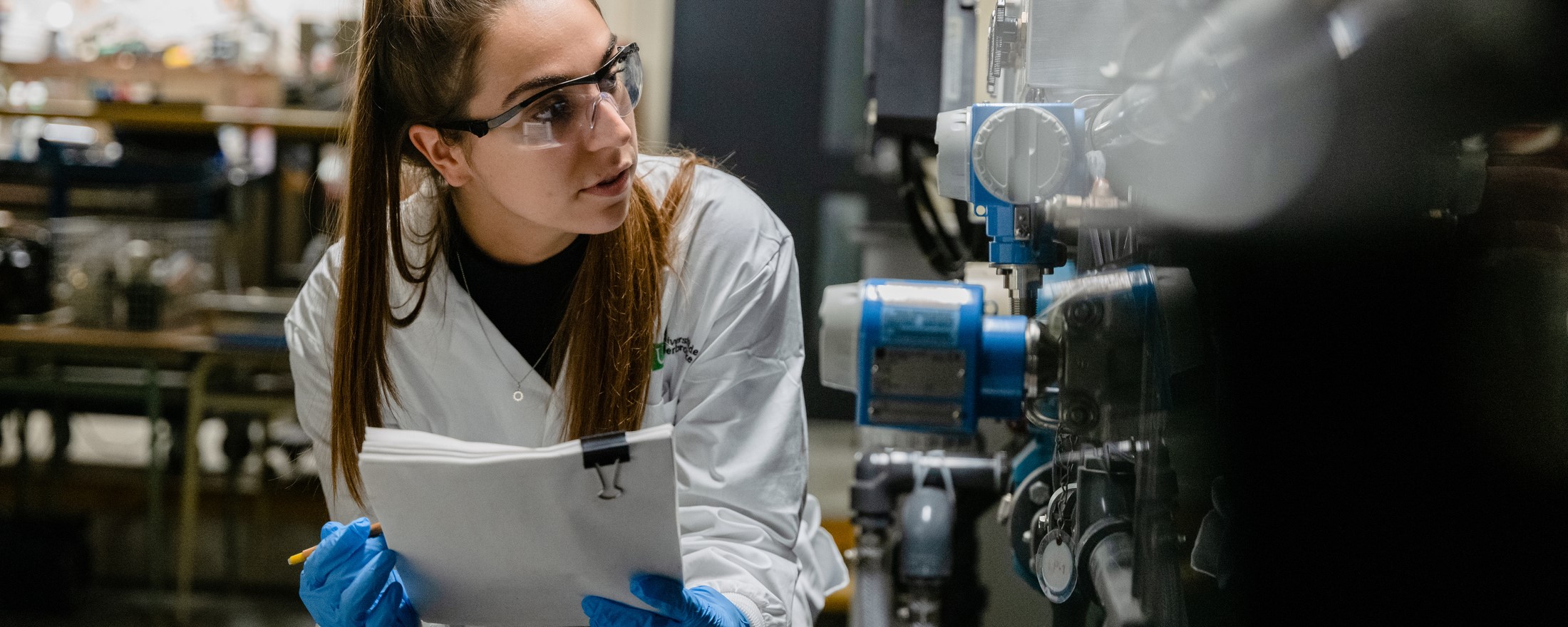Development and optimization of energy-efficient process
Overview
- RESEARCH DIRECTION
- Esma Ines Achouri, Professeure - Department of Chemical and Biotechnological Engineering
- ADMINISTRATIVE UNIT(S)
-
Faculté de génie
Département de génie chimique et de génie biotechnologique
- LEVEL(S)
- 3e cycle
- LOCATION(S)
- Campus principal
Project Description
This project is part of the global efforts made for carbon cycle recovery and the reduction of CO2 footprint, the main contributor to GHG emissions, to produce renewable energy carriers; mainly synthetic fuels. The production of synthetic fuels is one of the most promising routes for renewable fuels. Regarding sustainability, liquid fuels have a crucial advantage over electrical transportation: liquid fuels can use the existing infrastructure available for gasoline and diesel e.g. engines, pipelines and gas stations. Also, there should not be barriers to long distance travel (planes and ships) like limited battery life when using electrical engines alternatives. Reforming reaction assisted with nonthermal plasma : This research axis concerns the development of new highly efficient approaches to produce energy carriers including: syngas (mixture of H2 and CO) and synthetic fuels, using catalytic conversion processes assisted by alternative energy sources, namely plasma, classified as PI-supporting method[15]. The first studied reaction is methane dry reforming reactions (DR), which consists of producing syngas, from hydrocarbons (e.g. methane (CH4) dry reforming: MDR). The approach consists of appropriate combination of non-thermal plasma (NTP) and heterogenous multifunctional catalysts to process at low temperature (around 200⁰C instead of 900⁰C) and low-emission MDR process. NTP is an ionized gas with a mixture of high energy species (ions, electrons, radicals, neutral molecules). It can induce various chemical reactions at both atmospheric pressure and ambient temperature, due to the formation of highly reactive short-lived species Dry methane reforming is one of the most promising processes for replacing at least some of the hydrogen production by steam reforming. It consists of reacting two greenhouse gases (CH4 and CO2) to produce H2 and CO. The methodology to be developed for this objective consists of : (a) investigating the dry methane reforming process and identifying the possible levels of intensification (catalyst, heating...) (b) develop a plasma reactive and efficient catalyst for dry reforming. (c) Investigate experimental conditions (e.g., input flow rate, plasma power, residence time) for optimal synthesis gas yield.
Discipline(s) by sector
Sciences naturelles et génie
Génie chimique
Funding offered
Yes
The last update was on 6 October 2023. The University reserves the right to modify its projects without notice.
